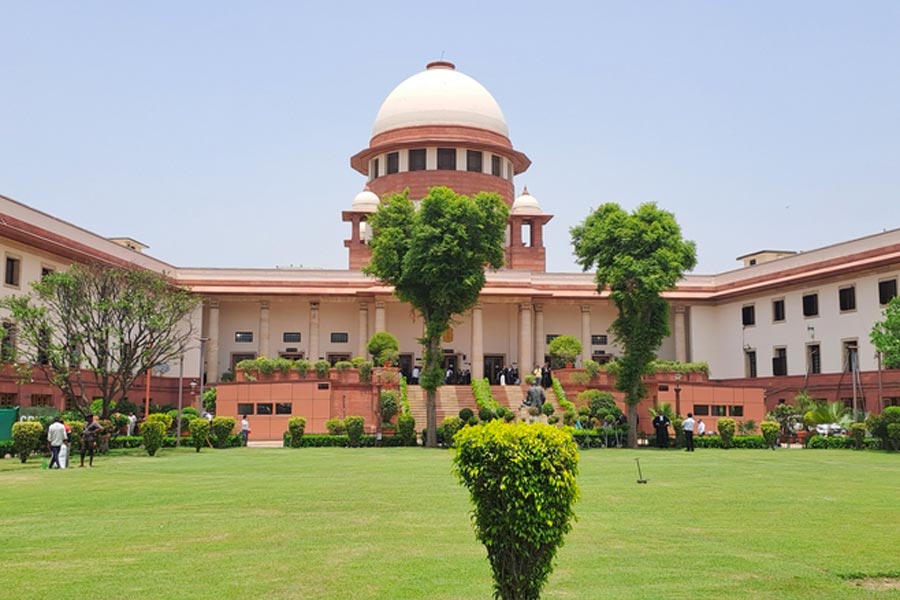The Supreme Court on Monday sought the response of the Centre and Kerala Governor Arif Mohammed Khan's office on a plea of the state government accusing him of not granting assent to several bills cleared by the Assembly.
A bench comprising Chief Justice D Y Chandrachud and Justices J B Pardiwala and Manoj Misra took note of the submissions made by senior advocate K K Venugopal, alleging a delay on the governor's part in granting assent to eight bills.
The court also issued a notice to Attorney General R Venkataramani, seeking assistance from him or Solicitor General Tushar Mehta in the matter.
The court will now hear the Kerala government's plea on Friday.
"This is an endemic situation. The governors do not realise that they are part of the legislature under Article 168 of the Constitution," Venugopal said.
The former attorney general, appearing in the court on behalf of the southern state, said copies of the petition have been served to the offices of the attorney general and solicitor general.
Venugopal said the governor is also a part of the legislature under Article 168 and eight bills are pending his assent.
The bench did not issue a notice to Khan and instead, sought the response of the additional chief secretary to the governor and the Centre on the plea.
"Mr Venugopal submits that 1) The governor is a part of the legislature under Article 168, 2) The governor had promulgated three ordinances which were later converted into those passed by the legislature, 3) As many as eight bills are pending consideration for assent ranging from seven to 21 months," the bench said in its order.
The Kerala government has claimed that the governor is delaying the consideration of the eight bills by withholding his assent and this is "defeating the rights of the people".
It has claimed inaction on the governor's part in relation to the eight bills passed by the state legislature and said many of these proposed legislations involve immense public interest and provide for welfare measures that would stand deprived and denied to the people of the state to the extent of the delay.
"The petitioner -- state of Kerala -- in fulfilment of its parens patriae obligation to its people, seeks appropriate orders from this court in relation to the inaction on the part of the governor of the state in relation to as many as eight bills passed by the state legislature and presented to the governor for his assent under Article 200 of the Constitution.
"Of these, three bills have remained pending with the governor for more than two years and three more in excess of a full year. The conduct of the governor, as would presently be demonstrated, threatens to defeat and subvert the very fundamentals and basic foundations of our Constitution, including the rule of law and democratic good governance, apart from defeating the rights of the people of the state to the welfare measures sought to be implemented through the bills," the plea says.
The government has contended that grave injustice is being done to the people of the state as also to its representative democratic institutions by the governor by keeping the bills pending for long periods of time, including three for more than two years.
"The governor appears to be of the view that granting assent or otherwise dealing with bills is a matter entrusted to him in his absolute discretion, to decide whenever he pleases. This is a complete subversion of the Constitution," it has submitted.
The plea says the governor's conduct in keeping the bills pending for long and indefinite periods of time is also manifestly arbitrary and violates Article 14 of the Constitution.
Except for the headline, this story has not been edited by The Telegraph Online staff and has been published from a syndicated feed.










